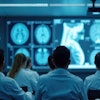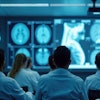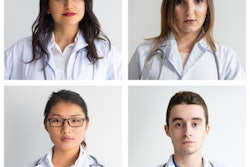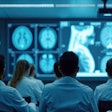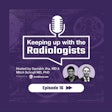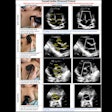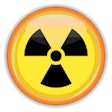
A hands-on elective that gives medical students the same access as first-year radiology residents may help better gauge student interest in radiology, suggest survey findings published August 18 in Clinical Imaging.
Researchers led by Alex Newbury, MD, from the University of Massachusetts Medical School in Worcester reported that most program directors felt that interest in radiology, motivation, and interpersonal skills would be better evaluated after a hands-on elective was implemented in medical school. They also indicated that a hands-on advanced elective would be "at least slightly predictive" of first-year resident performance.
"Based on this information, we believe implementing a hands-on advanced radiology elective would significantly help address the passive nature of traditional radiology electives, providing valuable information to program directors and advanced program directors and giving the best possible radiology experience to our medical students," Newbury and co-authors wrote.
There's a need for radiology program directors to adopt alternative methods of identifying interested and engaged medical students applying to their respective programs, the researchers wrote. This comes with the U.S. Medical Licensing Examination (USMLE) Step 1, which moved exams to a pass/fail status. Newbury et al also suggested that undergraduate U.S.-based radiology medical education varies "widely" from institution to institution.
The researchers developed and implemented an advanced fourth-year hands-on radiology elective, in which medical students were treated as first-year radiology residents. This one-month elective, in turn, allowed the students to have the same access to PACS and dictation software as residents would have access to. They could also perform entry-level procedures with supervision.
After completion, the team surveyed radiology residency program directors from across the country. It asked questions about the importance of such an advanced elective, as well as its potential impact on evaluating radiology residency candidates.
Newbury and colleagues received responses from 72 program directors and found that 59 (81.9%) were not aware of any residency applications who have completed such an advanced elective with hands-on experience.
They also identified the top three characteristics of what evaluating residency applicants would be better assessed by completing an advanced elective. These included interest in radiology (76.4%), motivation (68.1%), and interpersonal skills (55.6%), respectively.
The team also identified the top three qualities of first-year radiology residents that would be potentially improved by completing such an advanced elective. These include the following: "confidence with chosen field of residency" (81.9%); "comfort with the language of radiology" (68.1%); and "time spent learning the process of reading and interpreting" (54.2%).
The researchers also reported that about two out of three program directors (65.3%) felt that a hands-on advanced elective would be "slightly or somewhat predictive" of first-year resident performance. Finally, they found that four out of ten (40.3%) respondents felt that such an elective would be "helpful" or "very helpful" in evaluating a residency candidate.
The survey authors wrote that their findings highlight that the novel value added from such advanced electives may be owed to medical student exposure to radiology, rather than in evaluating potential residency candidates. However, they highlighted that their findings could help program directors with better evaluation of these candidates.
"That said, thanks to the robust exposure granted by such an elective, we maintain that fourth-year medical students who complete a similar hands-on elective are better prepared for and more confident about choosing radiology as a future career ..." they wrote.
The full report can be found here.

